Cochin Shipyard Ltd
FluidFlow helped Cochin Shipyard Ltd achieve significant cost savings and prevent further rework in the already constrained plant area.
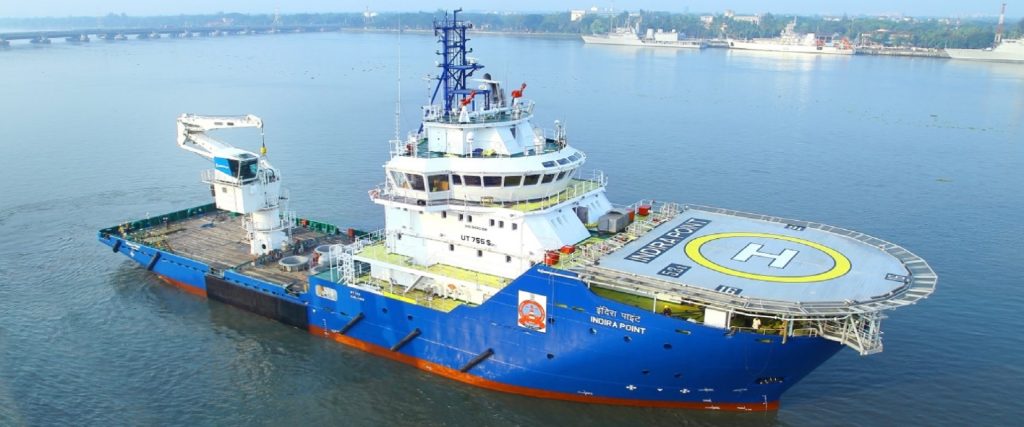
Company Profile:
Cochin Shipyard Ltd India is one of the top integrated marine building, repair and training services companies and India’s most respected commercial & defence ship and offshore structure building facility. www.cochinshipyard.com
Projects Overview:
The IRClass (Indian Register of Shipping), a leading Classification society and member of IACS, has just completed the new construction survey of the MV Indira Point which was completed two months ahead of schedule at a cost of approximately USD 25 million.
This vessel is a high value, technologically sophisticated Buoy Tender multi-purpose vessel built by Cochin Shipyard Ltd (India) under single class. The new vessel MV Indira Point, 72 mts long, 1350 tons DWT, fitted with Heli-deck and a 35 tons capacity crane for handling buoys in deep seas was handed over to the Directorate General of Light Houses and Light Ships (DGLL India) in April 2015. IRClass Chairman and Managing Director (CMD) Mr Arun Sharma said “This single class project and its successful completion represents a major step forward for IRClass”.
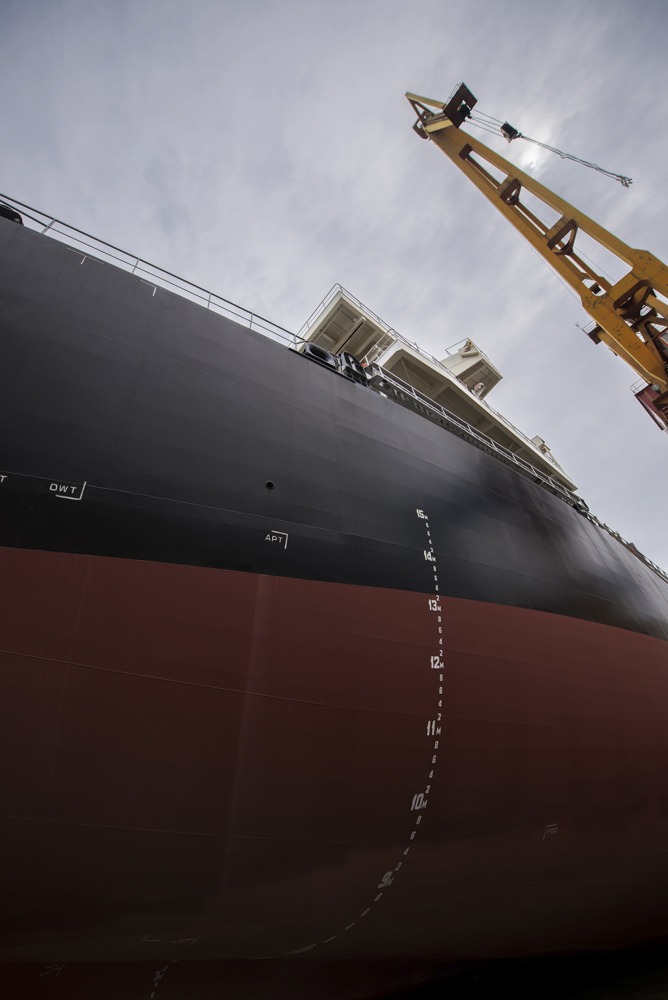
Challenges:
To evaluate the operating performance of an existing pumped sea water fire fighting system serving a heli-deck, determine the plant limitations based on a revised system layout, identify any changes required and potential plant optimisation opportunities.
As per the contract specification for the vessel, a helicopter deck with D-Value of 16 meters was to be arranged above the forecastle deck and helideck to meet the requirements of DNV (Class). DNV Rules for classification of ships Pt.6 Ch.1 Sec.2 E301 states, a fixed foam application system consisting of either monitors or pop up nozzles with minimum capacity of at least 6 l/m2/min shall has to be provided. The system must be able to cover the whole of the helicopter landing area and have sufficient foam medium to enable the foam application rate to be maintained for at least 5 minutes.
A fixed foam application system consisting of pop-up nozzles and foam skid connects with a sea water supply assembly installed onboard the vessel as per the above CLASS requirements. As per the foam system design, there was a minimum flow requirement of 90 m3/hr of sea water and the pressure required at the foam skid was 8 bar.
FluidFlow & Cochin Shipyard Ltd
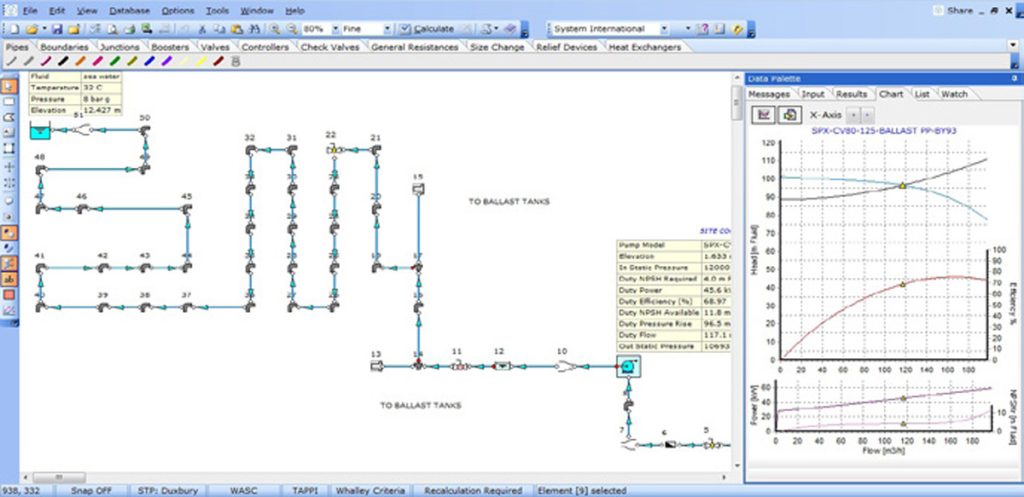
FluidFlow helped Cochin Shipyard Ltd:
- Allowed the team to quickly model the system within time restrictions.
- Increased production.
- Helped the design team achieve considerable cost savings that had not been anticipated at the project outset due to perfect pre-modeling calculations.
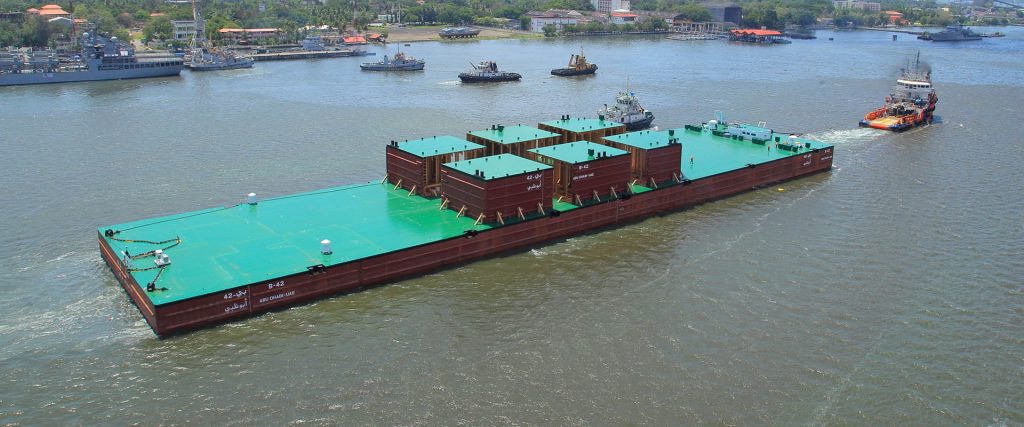
Arun Kumar
V-Machinery Design
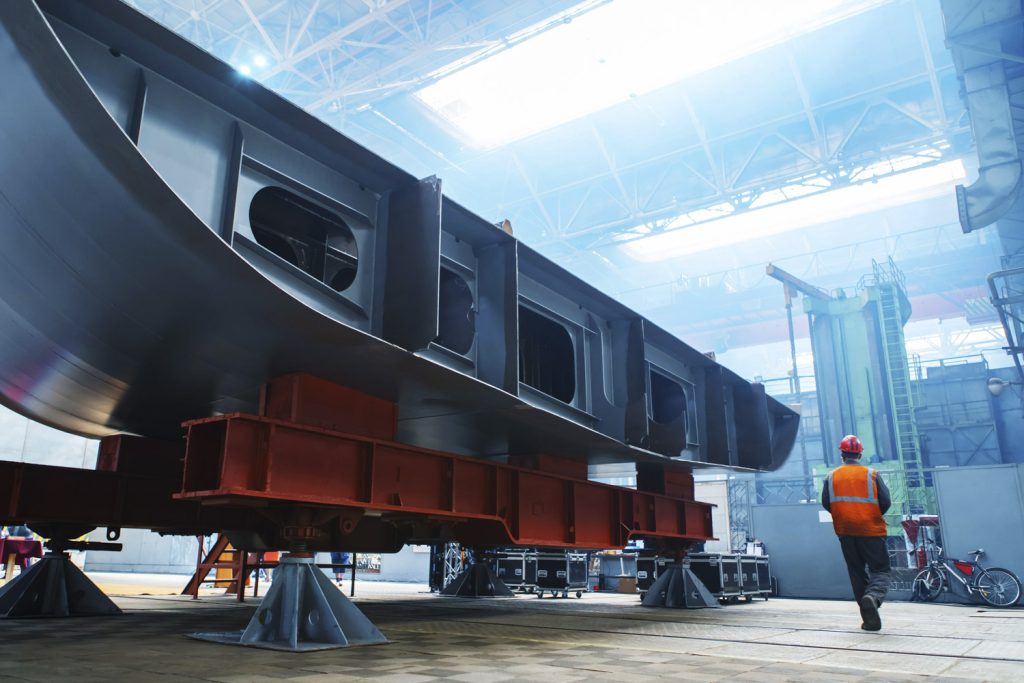
Impact
The design team achieved considerable cost savings which had not been anticipated at the project outset.

